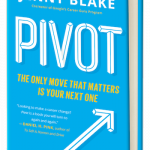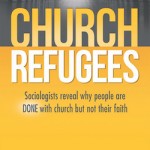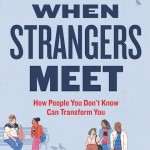 Once she completes an exhaustive tour promoting her new book about Theodore Roosevelt and William Taft, what will be her top priority? Attending conferences.
Once she completes an exhaustive tour promoting her new book about Theodore Roosevelt and William Taft, what will be her top priority? Attending conferences.as they do for her. Understanding history, Goodwin believes, provides deep insight into the present and future.
Her fascination with presidents began when she was a 24-year-old White House intern for Lyndon Johnson. “‘White House intern’ used to be a badge of honor,” she joked, “but it’s gotten more complicated.”
Goodwin is the author of several penetrating biographies of U.S. presidents: Lyndon Johnson and the American Dream; The Fitzgeralds and the Kennedys: An American Saga; No Ordinary Time: Franklin and Eleanor Roosevelt: The Home Front in World War II (for which she won the Pulitzer Prize for History in 1995); Team of Rivals: The Political Genius of Abraham Lincoln; and now The Bully Pulpit.
After earning a Ph.D. in government at Harvard University, she went on to be a Woodrow Wilson Fellow and a White House Fellow. Goodwin taught at Harvard University, including a course on the American presidency. She has appeared as a presidential historian on NBC, MSNBC, CBS, ABC, FOX, CNN, “The Charlie Rose Show,” “Meet the Press,” and many other programs. She is married to writer, presidential adviser, speechwriter, and playwright Richard N. Goodwin, who worked in the White House under both John F. Kennedy and Lyndon Johnson. The Goodwins live outside Boston, and have three grown sons.
Doris Goodwin credits her father with instilling in her a love of storytelling — and baseball. From the time she was six years old, he would ask her to listen to the Brooklyn Dodgers games on the radio and recount for him, inning by inning, the game’s plays when he got home from work. The first woman journalist to ever enter the Boston Red Sox locker room, Goodwin displayed evident excitement during our interview — which likely had as much to do with the fact that her beloved Red Sox were poised to win the World Series as with the release of her new book.
You have said that if you could have five historical figures over for dinner, you would invite Leo Tolstoy, Theodore Roosevelt, Abraham Lincoln, Jackie Robinson, and Barbara Tuchman. How did you select them?
Good first question! What I feel about history and leadership is that the best way to reach people who I write about is to be able to tell a story. People remember stories. If you can illustrate a leadership attribute by a story — as history is a series of stories of people who lived before — you can learn from their struggles and triumphs.
Storytelling is at the heart of what I do, how I talk and write. Leo Tolstoy is the greatest fiction storyteller that I ever read. Mostly, I write about groups of people, and Tolstoy does that best. In my new book, I have eight major characters — so watching a master at it is what I like to do.
Teddy Roosevelt is the person I have been living with along with William Howard Taft for the last seven years, and they become real figures in my life. That’s how I learn about them. It’s how I’m able to ask Roosevelt questions about his life and presidency.
Abe Lincoln is [on the list] because, of all the presidents I’ve studied, no one matches the ethical qualities that he had — just that inner strength of an extraordinary character. If you could only observe him, you would become a better person. He was such a great storyteller. That was a big part of his way — people used to love to listen to him tell stories. As the president, he told the story of America in the Gettysburg Address.
Jackie Robinson is on the list because of my irrational passion for baseball. As a kid, I cared more about meeting him than anyone — and after many years, I finally did manage to get his autograph, and I was thrilled.
Barbara Tuchman was a woman historian writing about military affairs. She said you have to write without knowing the end of the story, but rather according to what people knew at the time. That was a very important lesson.
To follow up about Abraham Lincoln, many people believe that he was introverted — not a characteristic typically attributed to a president, although today there is a greater appreciation for introverts’ contributions to society.
What you’re saying about Lincoln is very interesting. A child psychologist I know says you’re either born with an optimistic or a melancholy attitude — like you may say of Lincoln. It’s critical that the introverted person is able to get outside of himself. Lincoln said that the reason he told so many stories was to get rid of some of his sadness. Sometimes a shy person may not be able to connect as well to the outer world. Lincoln, although introverted, had that capacity, which I think is very special.
You’ve also said, “I shall always be grateful for this curious love of history, allowing me to spend a lifetime looking back into the past, allowing me to learn from these large figures about the struggle for meaning for life.” Please talk about how knowledge of the past is helpful in our lives today.
I think it’s critical that people read about past leaders so we don’t start everything all over again. It’s important to look at people who have been through similar challenges. Even if the challenges are different, you can learn from their mistakes and triumphs. If we think of some of our best presidents, they read the history of other presidents. You have to hope that any leader in any industry can look at their predecessors to learn where they went wrong and right.
Instead, often we start at the beginning, with no echo behind you, no foundation. Even though we’re so fragmented today, reading about others gives you time to relax and contemplate your life and actions.
People today are time-deprived and believe that their lives are so different from the past that there isn’t much to learn from history.
It’s not so. It’s interesting that at the turn of the century, there were so many new inventions — the telephone, the telegraph, so you could talk to people instantly. This is a time where things seem particularly frantic because of technological changes and fragmentation. Keeping up with all the different forms of communication without digging deeply into any one of them is challenging.
When people [used to write] letters, they thought deeply about what they were saying and clarified their own thoughts. Teddy Roosevelt clearly was as busy as president as we are, but read all the time. He said books teach you about human nature, which is the most important thing you need to know as a leader. Books are a constant companion.
The question is how people carve out the time. Being able to connect all the time — even on an airplane, which used to provide a different kind of time [experience] — is a real problem. It’s difficult to move away and think about something else entirely. “Because it is so irrelevant, it is exactly what I needed,” Teddy Roosevelt said of a book he was reading on a different subject.
Relaxing and keeping your mental curiosity alive is critical for leadership. That’s why conferences matter. Conferences are away— not just because of the camaraderie people develop when they’re there — of meeting others who they may compete with, helping to see others in a different setting, [which results] in connections being paved.
Your speaking schedule continues to be very robust. What best practices around program delivery have you observed at the many conferences at which you speak?
I listen to speeches before my own, which I like to do because often it’s the president of an association telling the history and of what is going on currently in the organization. It’s important to have someone talk to the audience as comrades, about what has gone right and wrong and hopes for the future.
I often think the PowerPoint thing removes you from listening to the speaker. I know audiences love the slides; however, I prefer speakers who talk about challenges in human terms rather than the audience reading along with the slides. I believe that the human being speaking with emotion without the crutch of the slides behind them is better.
I joined two people over dinner last week whose organizations have the majority of the market in an industry. They were kidding about each wanting more of the market, but because of common goals for legislation and concern about the whole picture, they’re willing to work together.
The conference environment facilitates open relationships to be forged. The Federal Reserve has a wonderful conference. They have workshops — a group of people are challenged with doing something [in their industry] together; a big mental challenge that they solve together.
Even the big shots do this in the environment of a conference. Mixing up the time you’re in a workshop with socializing so that people feel that they’re away is key. It seems to me at conferences where people are willing to spend a couple of days away as opposed to the one-day ones have more impact. You’re taken away from your work. You see people at coffee breaks and can come up with an innovative solution, and get unstuck like Theodore Roosevelt did when he went sailing [and was] away from Washington.
The question for today is: Does the conference still let you get away [when you consider] all the technological connections people [make] during conferences? That’s something for meeting professionals to address. Time for more interaction over a few days without distractions is likely to replenish you more than a shorter meeting and one where people stay connected back to the office during the conference hours.
Speaking of shorter time frames, you have spoken at TED conferences. What do you think of the current trend to present and learn in shorter blocks of time?
I’m so used to a 40-minute timeframe. I found it very challenging to get my thoughts down to 18 minutes. The good thing is that it’s like writing a short story or a poem, because you have to take the best of what you would have said. It gets people to have concentrated thought about what they want to communicate and allows more people to present in a day. It works for them. I would rather have time to tell stories, bring in history, and talk about leadership. If I had to talk for only 18 minutes all the time, it would be difficult. But it was a fun experience for the TED conference.
You are master storyteller. Is there a recipe for successful storytelling? How do you tell a memorable story?
The importance of storytelling in the old days is that people passed stories down in their communities and shared wisdom from generation to generation. That’s how people learned. Stories have a beginning, middle, and end, so people can easily tell it to someone else. When you’re writing, you can use the voices of the people you’re writing about. That’s why I quote stories so often. The best way to bring someone or an idea to life is through the voices of people who experienced it and to [let them] tell their own stories.
In addition to being a speaker at conferences, do you attend conferences as an attendee to learn and keep current? If yes, what do you look for in choosing a particular conference to attend?
While I was working on [my] Lincoln [biography], I noticed that there were tons of Lincoln conferences and meetings. I met a lot of my fellow Lincoln scholars at them. In the very beginning, I was just attending. Completely in line with what you’re talking about, I’m thinking about possibly writing my next book on leadership. So instead of another long research book, which can take me seven to 10 years [to complete], instead I may write about the lessons from the White House by using presidential stories to illustrate leadership attributes.
After I finish my book tour, I’ll look for leadership conferences, as I’d love to learn at these conferences. So, I have to be compelled to attend based on a high level of interest in a subject and in learning something new.
As a presidential scholar, do you think America is ready for a woman president? What are the leadership qualities you think are essential for our next president?
I do think we’re ready for a female president. I think that Hillary [Clinton] could easily have won the last time around, but she was up against another historic figure — the first African American president and a true competitor in the race. The fact that [President Obama] appointed her Secretary of State was really good for her.
Since we live in a democracy, the most important thing a leader has to master is the ability to communicate — to educate the country on what needs to be done. It’s harder today to communicate. Now our society is so fragmented, the networks say what they wish, excerpting from what leaders say and then immediately the pundits give their own viewpoint. And then another issue comes up quickly, and the first issue no longer has staying power. We can be talking about gun control and then another issue pops up. It seems like to sustain a conversation to move an issue forward will take someone who really knows how to communicate and to command attention. How do you get people to concentrate? How do we get the country to concentrate so that Congress will act by going across party lines?
Please comment on openness and transparency vs. the political spin and how leaders you studied have developed that balance.
It’s a hard balance. Lincoln made many deals in order to pass the 13th Amendment. Transparency can undo the deal. Sometimes for the kind of compromises you need to make, it’s necessary to have transparency, but on the other hand, too much transparency begs the question — can you really make deals? So it’s all about the balance.
You have talked about psychologist Erik Erikson’s concept about the importance of striving for inner balance between work, love, and play. What do you recommend?
What Erikson told us was that we should develop many interests early in life. Find something you’re passionate about in addition to work, family, friends, and colleagues. Doing other things is critical so that your work doesn’t become everything. Play — whether it’s a hobby or a sport that takes you away from yourself— is critical.
The more you develop these interests when you’re young, the better your balance will be. There will be times in your life when things are out of balance — like when your children are young or you’re starting your career. There are other times, like when you’re retired, when you have the time for play and pressure is diminished. Unless you develop the ability to enjoy those three realms [work, love, and play] like I talked about [in my TEDTalk regarding Lyndon Johnson], you’ll have difficulties. In his last years on the ranch, [Johnson] didn’t have hobbies, or sports he liked to watch. All he wanted to do was to work. We all need other interests to call on as we get older.
Is baseball one of yours?
Without question. Baseball is a passion. I’ll be at the World Series tomorrow night when I’m supposed to work on my speeches, but it’s fine. When I go to a game, I don’t think of anything else for the few hours that I’m in the park. Like when Lincoln would go to a Shakespeare play, for a few precious hours he wouldn’t think about the Civil War. When FDR had his cocktail hour, you couldn’t talk about any other issues except gossip and lighter topics. Everybody needs a few precious hours not to think about major things on their mind.
What is the process you follow when you are working on a new book?
For me, what happens is the idea is the person. It’s who I’m going to want to spend my time with over the next years. With my new book, I started out [reading about] Teddy Roosevelt. Knowing how many good books are [already] written about him, I couldn’t just write another biography. I read further and found it interesting that he picked Taft as his successor. I started reading about Taft and found out about their unique friendship. That became the core of my research.
One liked the press and the other didn’t, so that got me to study the press and became the bully pulpit part of the story. Then another cast of characters came into the picture. Most important for me is to delve into the issue very deeply. I have others to help — a researcher and an editor with whom I’ve worked for 25 years. I delegate and work as team. Gathering of material is something to get help on. I also have a special assistant who knows me well, and the Internet has made everything much easier.
What’s next for Doris Kearns Goodwin?
I’m pretty sure that I’d like to go back and figure out from all the different leaders that I have studied in depth, what are qualities that they share, what kind of mistakes did they make, what can we learn from the stories that I’ve told about these leaders. I would illustrate leadership attributes through stories and what I think they had in common. I already started reading a lot of the leadership books by business writers — emotional intelligence books, social intelligence books. Then I’ll go back to my people, presidents I studied, and find out what I’ve learned over the past 40 years to illustrate leadership.



